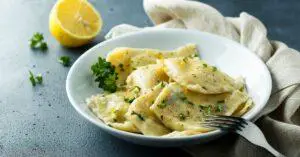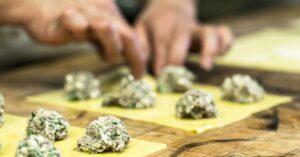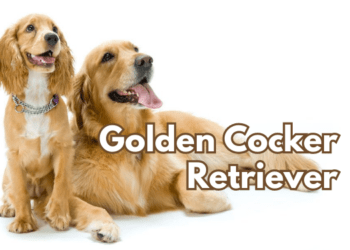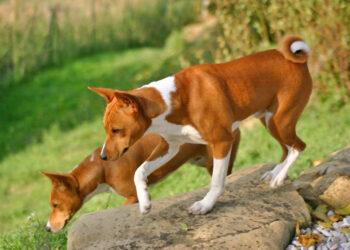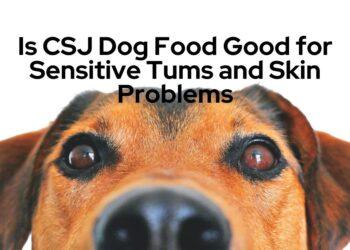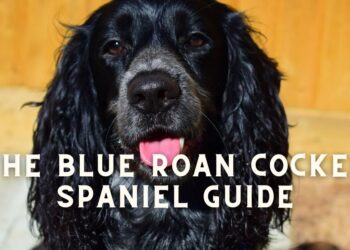Yes, dogs can eat ravioli. This stuffed delectable piece of food is not only a human’s favorite, but is also well liked by canines all over the world. They can be coupled with beef, pork, and chicken and make a wonderful piece of occasional treat. However, there are certain limits to administering this Italian cuisine which should always be strictly followed.
Below we will be looking at these factors in detail. So, stay tuned until the very end.
Table of Contents
What is Ravioli? Is it healthy for dogs?
Ravioli is in reality an Italian conventional pasta that arrives with delicious fillings inside it. This thin dough of pasta is often combined with meaty fillings, which is then dipped in sauces or broth and offered as little snacks before the main meal.
Now coming to the second question, while ravioli does make a ravishing appetizer, if or not the dish will be healthy for canine consumption depends on the fillings and manufacturing. So, if you have used all canine-safe components, then there is nothing to be worried about. Just offer some of this filled up pasta to your canine and witness the happiness and excitement with which they consume.
What is the nutritional breakdown of Ravioli?
To understand this better, here is a table showing the various nutritional contents you can find in ravioli (minus the fillings).
| Nutrition | Content Breakdown |
| Carbohydrate | 31 gms |
| Fat | 3.4 gms |
| Cholesterol | 5 mg |
| Sodium | 730 mg |
| Glucose | 8.9 gms |
| Fiber | 3 gms |
| Protein | 6 gms |
| Vitamin A | 10% |
| Vitamin C | 6% |
| Calcium | 80 mg |
| Iron | 0.7 mg |
So, from the table we can see that, ravioli comes packed with high amounts of fats and carbohydrates that when administered regularly can be problematic to the canine’s health. Therefore, it is best to only offer this Italian cuisine as an occasional treat and nothing else.
Ravioli, if we exclude the meaty fillings, has not much nutritional benefit for canines, and thus only makes up for a change in taste against their regular food. But that also doesn’t mean that pet parents can be completely nonchalant with its consumption. There are many things that go into the making of this dish and therefore, one must be extra cautious of using only canine-safe components and that too within an appropriate dosage.
Will Ravioli hurt my dog?
Like we discussed earlier, improper consumption of this Italian cuisine can lead to health problems. So, unless a regularity is maintained in its administration, the pup will be fine.
Similarly, other essential factors that may come into play when deciding the after-effects of ravioli consumption include: age, gender, previous medical history, existing medications, etc. For instance, older dogs may not be able to completely digest the contents given its high fat and cholesterol content, and thus may end up with a bad case of diarrhea when offered with ravioli on a more frequent basis.
Exposure to Canine Obesity
This dish is filled with carbs. And hence feeding your beloved fur bundle with huge amounts of this dish can increase their exposure to canine obesity and weight gain. The excess calories get on accumulating, with side folds starting to appear, which may worsen even further if the dog doesn’t have regular access to plenty of physical exercising.
Moreover, obesity is also linked to the onset of more severe conditions including diabetes, heart diseases, stomach cancer, etc.
Loss of appetite
Just as stated above, when a canine consumes ravioli they are exposed to many things. Upon entering their tummy, the dough expands, making them feel full and therefore the canine might not feel like consuming their normal diet. These fillings can take too much time to be completely digested and thus until the pooch feels hungry again, they may stay hungry rather than filling their stomach even more.
Allergies and other sensitivities
Finally, if you administer the dish without consulting with a vet first, then there are ample chances that the pooch may exhibit severe allergic reactions and other sensitivities. It is important to understand that every dog is different. And hence while some woofers may munch down on this dough made pasta quite excitedly, others may start showing health issues. These may range from subtle signs of nausea to extremities like painful skin rashes, blisters, diarrhea with blood spots, seizures, and so much more.
It may take a few minutes from a couple of hours for the initial symptoms to appear. However once they start appearing, they will grow rapidly and at an uncontrollable rate. So, never and I repeat NEVER administer any new diet, no matter how safe they are shown in advertisements without asking for your vet’s advice.
Consumption of toxic elements
Unless handmade by you, there is no way of finding what has been included in the ravioli, and so the little ones might end up consuming something toxic. This dish usually comes topped with dehydrated onions and spinach with high amounts of sodium or corn syrup on top of it. Remember that everything that has been mentioned here is highly toxic for canines and thus even a single piece could cause devastating consequences.
Although the side-effects may not be instant, they could slowly grow into serious circumstances, depriving the pup from a normal, healthy life.
What are the side effects of offering ravioli to my dog?
These include:
- Vomiting
- Diarrhea with blood spots or mucus
- Stomach ache
- Constipation and smelly flatulence
- Lack of appetite
- Severe lethargy
- Stomach bloating
- Irritability and aggressive behavior
- Withdrawal from general day-to-day activities
- Swelling in various parts of the body
If any of the conditions are noted, make sure to take your pooch for an emergency vet checkup. Wasting any more time isn’t wise and will only impact the canine’s health even more.
What kind of raviolis are safe for canines?
Out of all available ravioli types, you can safely administer raviolis that consist of:
- An appropriate amount of spinach and cheese
- Mozzarella and Zucchini ravioli
- Minced meat
- Mushroom
- Vegan tofu
- Carrot and ricotta
- Pumpkin
- Salmon and Dill
NOTE- All these ravioli variations are only safe when the contents have been thoroughly cooked and used in a calculated way. Depending upon the size, age, and breed type, your canine may not do well if any of the elements are overused, and hence it is better to cook ravioli for your pup rather than letting them have the ones bought or ordered from restaurants.
Are there any safer alternatives to this dish for dogs?
Alternatively, it is okay to feed plain, cooked or uncooked pasta to your fur bundles. As pasta is generally composed of three canine-safe elements, that is flour, eggs and water, feeding them a little bit of this yummy food every once in a while is deemed okay.
Most dogs don’t have a problem digesting this delectable human feed, but ensure that the same hasn’t been mixed with spices, sauce or any kinds of syrup. Pet parents can administer plain pasta once or twice a week against ravioli, or as directed by their veterinarian. Doing so will serve as an enjoyable experience to the canine and will also offer them a change in taste.
You may also like:
7 Vet Recommended Easy Homemade Food for Cocker Spaniels
Reference:
- peta2.com/vegan-life/human-foods-safe-for-dogs/
- aashpazi.com/ravioli-calories#:~:text=Perhaps%20that’s%20one%20of%20the,and%2068%20calories%20from%20fat.
- adumplingthing.com/homemade-ravioli-recipes/
If you are a dog lover then, Subscribe to our weekly newsletters. No Spams!

